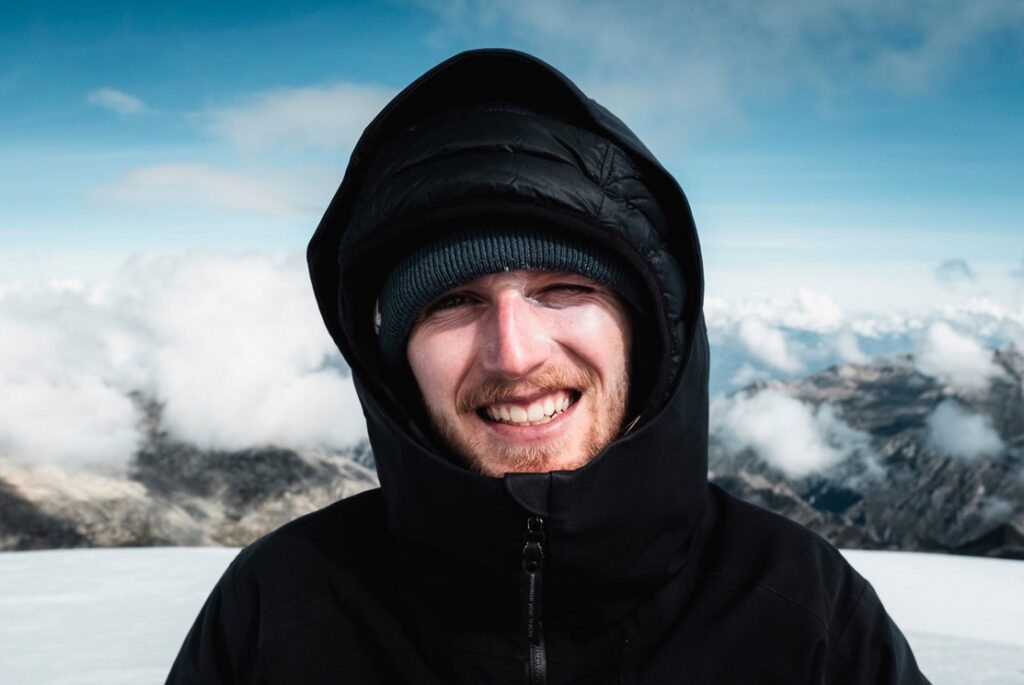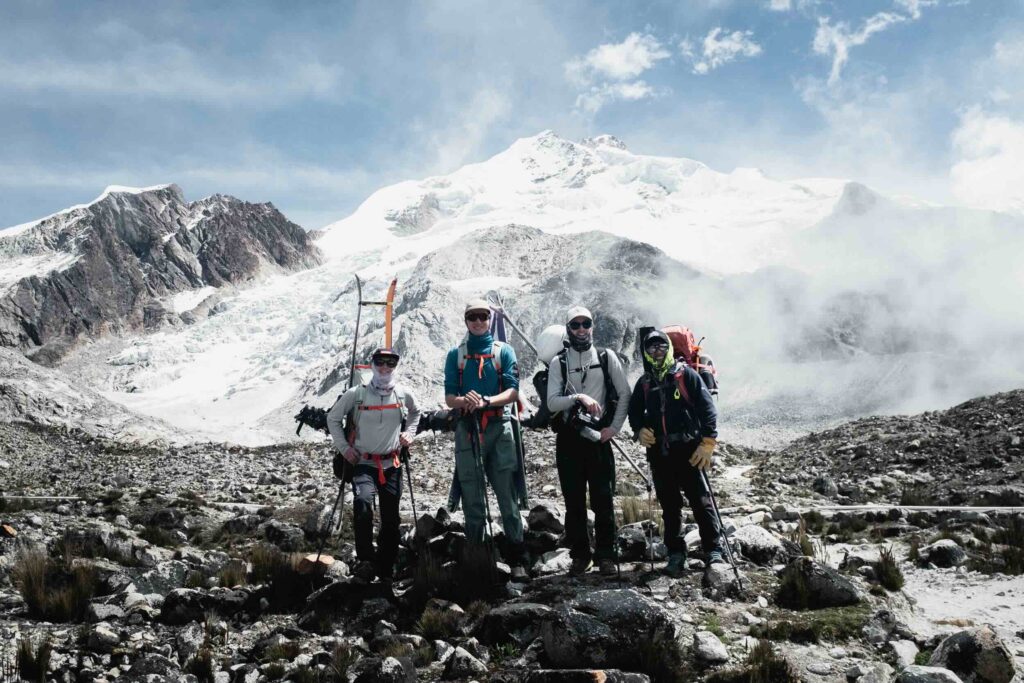
Paul Schweller: “Sariri is something different from a classic ski film”
For “Sariri,” filmmaker Paul Schweller had to ascend nearly 6,000 meters with his camera. Here, he talks about how he prepared for this unique journey into the Andes, what he took home from the experience, and why topics like neo-colonialism also played a crucial role.

How would you describe your approach to filmmaking? What drives and inspires you?
Paul Schweller: I have a very documentary-style approach because I enjoy telling real and authentic stories. Although no story fully represents the truth, since a film always reflects the perspective of the person making it. But I don’t want to highlight that too much or push a specific message that I come up with beforehand.
Of course, I have an intention when making the film, but I don’t want to be didactic. It would be nice if people take something away from the film — each person something different. I find it exciting when you can appeal to various people and move them emotionally—and maybe even change the way they think about certain things.
How did you prepare for the extreme conditions at 6,000 meters in the Andes?
I didn’t prepare in an extreme or specific way, but I continued the kind of sport I usually do. Of course, we spent a lot of time in the mountains beforehand to have the necessary basic fitness. But you can’t really prepare for that altitude here. So, a longer acclimatization period on-site was essential, and we stayed in La Paz for quite a while, as the city is already at about 4,000 meters. That allowed us to acclimatize slowly. We also did three hikes up to 5,000 to 5,500 meters. And because of that, we did quite well on the higher mountains.
To what height did you climb with your camera?
The highest point was at Huayna Potosi in Bolivia, where I reached nearly 6,000 meters. On the other mountains, I was at around 5,700 to 5,800 meters. It feels cool, but in the moment, you don’t really notice that you’re at that altitude and carrying the camera. The more challenging part was the preparation—figuring out what to bring. We had to set up two camps before summiting, and it was crucial to plan everything, making sure we had all the necessary technical gear, that everything was charged, and that we had enough batteries.
TERMINE UND TICKETS FÜR DAS FFF 2024
What were the biggest challenges during the production?
As I mentioned, the biggest challenge was figuring out what technical equipment to take: batteries, SD cards, lenses. You always have to balance that because you don’t want to carry too much weight. Otherwise, things went relatively smoothly. The local guides, Christian and Sergio, did most of the on-site planning.
Another challenge was climbing two mountains where we weren’t sure if it would even be possible to ski. We were there relatively early in the season, so there were no reports or pictures of the snow conditions. In Bolivia, the conditions were decent, although we had very little snow for that time of year. In Peru, it was much worse—we couldn’t climb one of the mountains because it was too warm. So, the snow conditions were the biggest challenge.
Looking back, what makes you particularly satisfied with this project?
I can’t really say yet because I’m still too close to everything. But it would be great if people realize that we created something different from a classic ski film. Over the past few years, our projects have been very focused on skiing. This time, I consciously wanted to reduce that and focus more on the people, their personalities, and larger issues like neo-colonialism.
In the ski bubble, people often think of those classic expedition films. So, this time, I wanted to question the point or the appeal of flying halfway around the world just to ski or even make a first descent. If that comes across and appeals to a wider audience, I would be very satisfied.
Ähnliche Artikel
22.10.2024
Griffin Glendinning: “Svea Irving had never been filmed in the backcountry before”
"Stasis" is a mystical, melancholic portrait of Svea Irving, who competes for the US national team in the halfpipe. The film showcases her experiences in the wilderness and in nature in a cool and abstract way. In this interview, director... more15.12.2021
Worldwide Show: Winning made easy
Our Worldwide Show on 16 December not only offers an exciting, entertaining film programme. The exclusive prizes we are giving away online are also really something special. https://vimeo.com/640954940 Everyone can win When... more03.12.2021
Get ready for the FFF Worldwide Show on 16 December 2021
We will do it again! After our first live stream event in December 2020 was such a great success, we are going global again with the FFF Worldwide Show. The start is on December 16, 2021 at 7 p.m. (CET). The tickets are available in three... more